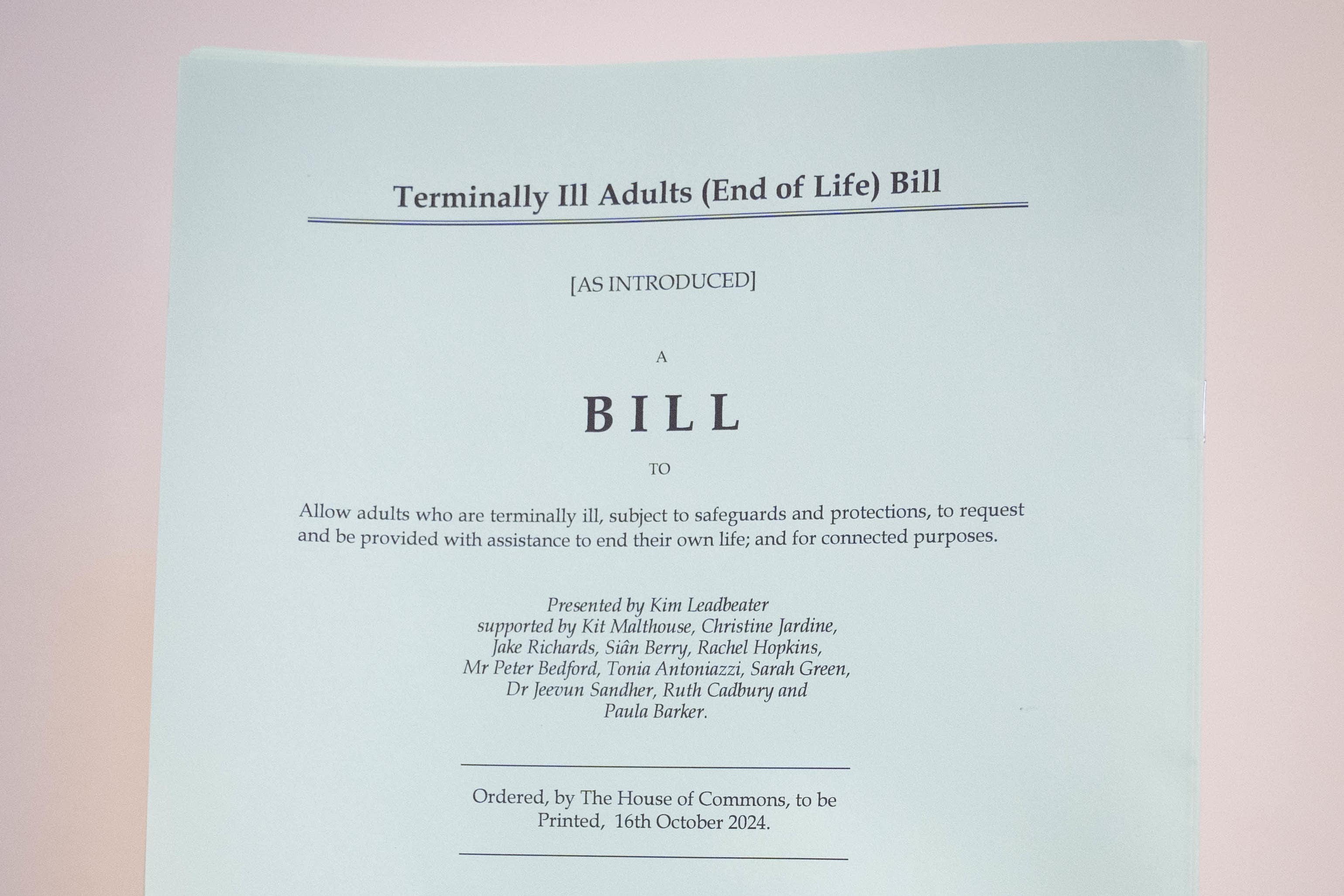Liberty: Assisted dying Bill presents serious safeguarding risks
The debate and expected vote on November 29 will be the first on the controversial issue in the Commons in almost a decade.

Human rights organisation Liberty has said that while it supports assisted dying in principle, there are “significant shortcomings” in the Bill set to be debated in Parliament next week.
The Terminally Ill Adults (End of Life) Bill has a “principles first, details later” approach which could lead to significant risks to marginalised and vulnerable groups, Liberty claimed.
The debate and expected vote on November 29 will be the first on the controversial issue in the Commons in almost a decade.
It is possible to support assisted dying, as Liberty does in principle, but recognise that there are significant shortcomings in this Bill that present serious safeguarding risks which are hard to look past
Labour MP Kim Leadbeater has described her proposed legislation as the “most robust” in the world.
Unveiling details of the Bill last week, she said it contains “three layers of scrutiny” in the form of a sign-off by two doctors and a High Court judge, and would make coercion an offence with a possible punishment of 14 years in jail.
But Akiko Hart, Liberty’s director, argued the Bill is “just not robust enough”, and urged MPs to oppose it if they “find it wanting”.
She said: “It is possible to support assisted dying, as Liberty does in principle, but recognise that there are significant shortcomings in this Bill that present serious safeguarding risks which are hard to look past.
“What’s really important is to look not just at who might benefit from assisted dying, but at who this Bill might harm.
“Ultimately, the safeguards in this Bill are just not robust enough, and leave too many details to be decided later, particularly at a time when there is already great inequality in our healthcare system.
“We know that the impact of these decisions often falls sharpest on disabled people and communities of colour, who are already less likely to receive good quality of care.”
Ms Hart said there are “too many details” which “have not gone through a process of scrutiny, and as a result are simply not precise enough”.
She said there is a danger of the Bill “evolving into something it was never intended to be”, warning of risks that some people in marginalised communities could feel pressured into an assisted death.
Ms Hart added: “It is clear to us that serious human rights concerns exist and are not being considered due to the rushed nature of this Bill.
“MPs must bear this in mind when they vote.
“If they find it wanting, they should oppose it.”
Ms Leadbeater has previously rejected accusations the Bill has been rushed, saying almost three weeks between the full wording being published and the Bill being debated is “plenty of time” and normal within parliamentary time frames.
If the Bill passes the first stage in the Commons, it will go to committee stage where MPs can table amendments, before facing further scrutiny and votes in both the House of Commons and the House of Lords.
Ms Leadbeater suggested any new law would not take effect for another two to three years, with “even more consultation to make sure we get it right”.
Parliament’s longest-serving MPs, Sir Edward Leigh and Diane Abbott, made a joint plea this week for colleagues to reject the proposed legislation, and allow for more time to consider the “immense complexities” of the issue.
Bookmark popover
Removed from bookmarks